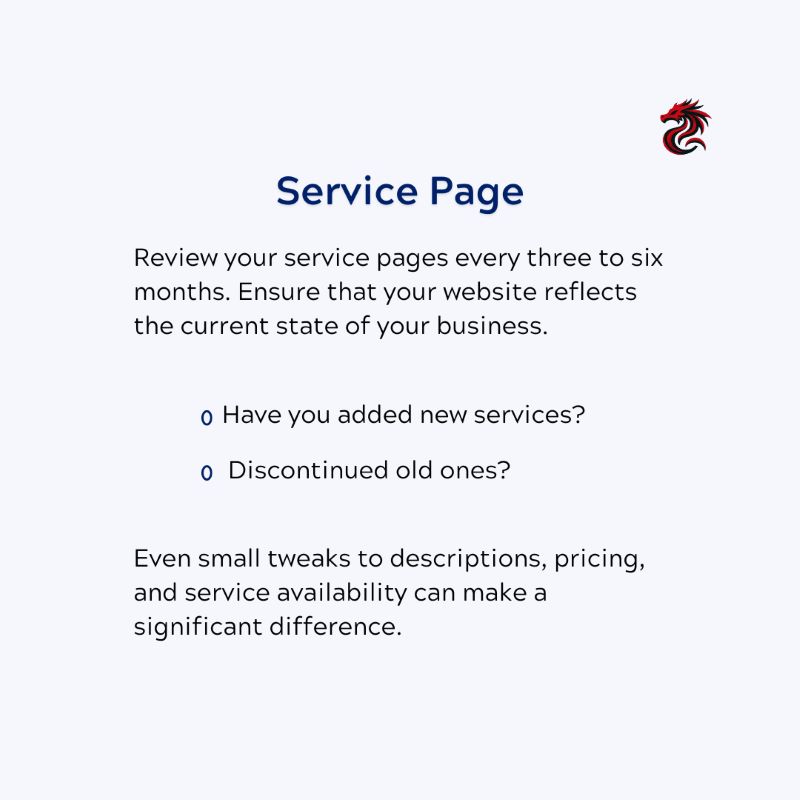How Often Should You Update Your Website Content? | Expert Tips from a Full Service Digital Agency
Hey there, digital dynamos! 🚀 In today’s lightning-fast online world, your website isn’t just a digital brochure—it’s your brand’s heartbeat. But here’s the kicker: setting it up and forgetting it? Not an option anymore. To keep your audience hooked and your SEO soaring, regular content updates are absolutely essential. So, how often should you be refreshing your website, and which areas deserve your attention the most? Let’s dive in!

Why Updating Content Matters
Alright, let’s get real. Keeping your website content fresh isn’t just a nice-to-have—it’s a must-have for several reasons:
✨ SEO Improvements: Search engines love fresh content. According to Neil Patel, "Fresh content signals to search engines that your site is active and relevant," which can skyrocket your rankings. Higher rankings mean more visibility, and more visibility equals more traffic. Simple math, right?
💬 User Engagement: Engaging content keeps your visitors coming back for more. HubSpot found that "companies that blog consistently see 55% more visitors." Whether it’s blog posts, updated product pages, or the latest news, fresh content keeps your audience hooked and boosts engagement.
📈 Reflecting Business Changes: Your business evolves, and so should your website. Forbes emphasizes that updating content to match your current business developments is crucial for maintaining transparency and building customer trust.
🤝 Building Trust: Consistently updated content showcases that your business is active and reliable. According to Moz, "Quality, fresh content builds trust," helping establish your authority in the industry.
How Often Should You Update?
Great question! The frequency of updates depends on the type of content you have. Here’s a handy breakdown:
- 📝 Blog Posts: Aim to post new content weekly or bi-weekly. Content Marketing Institute recommends consistency to keep your audience engaged without burning out your team.
- 🔧 Service Pages: Review and update these every 3-6 months. Add new services or remove outdated ones to keep your offerings current. Check out our post on Professional Websites for Small Businesses for more tips.
- 🛒 Product Pages: For e-commerce sites, update product information, pricing, and availability regularly. Brian Dean of Backlinko notes, "Outdated product pages could cost you sales."
- 🔍 SEO and Meta Descriptions: Conduct SEO audits quarterly to adapt to changing algorithms and trends. Our SEO Basics guide has all the strategies you need.
- 🎉 Seasonal Updates: Align your content with seasons and holidays. Sprout Social suggests preparing seasonal content in advance to stay relevant.

Content That Needs Frequent Updating
Not all content is created equal. Here are the key areas that deserve your regular attention:
- 🏠 Homepage: Keep it fresh with the latest updates, events, or featured products. Search Engine Land states, "Your homepage is your brand’s first impression; make it count."
- 📖 About Us Page: Update with new team members, achievements, or shifts in your mission. Our post on Who We Are and What We Stand For has all the insights you need.
- ⭐ Testimonials and Case Studies: Regularly add fresh testimonials to showcase ongoing success. Capterra advises, "Current testimonials keep your site dynamic and trustworthy."

Conclusion
Keeping your website content updated is like maintaining a vibrant garden—it requires regular care but reaps tremendous rewards. From boosting your SEO to enhancing user engagement, fresh content keeps your digital presence thriving. Ready to elevate your website? Check out our comprehensive guide on Website Health Checks to ensure your site is in top shape.
